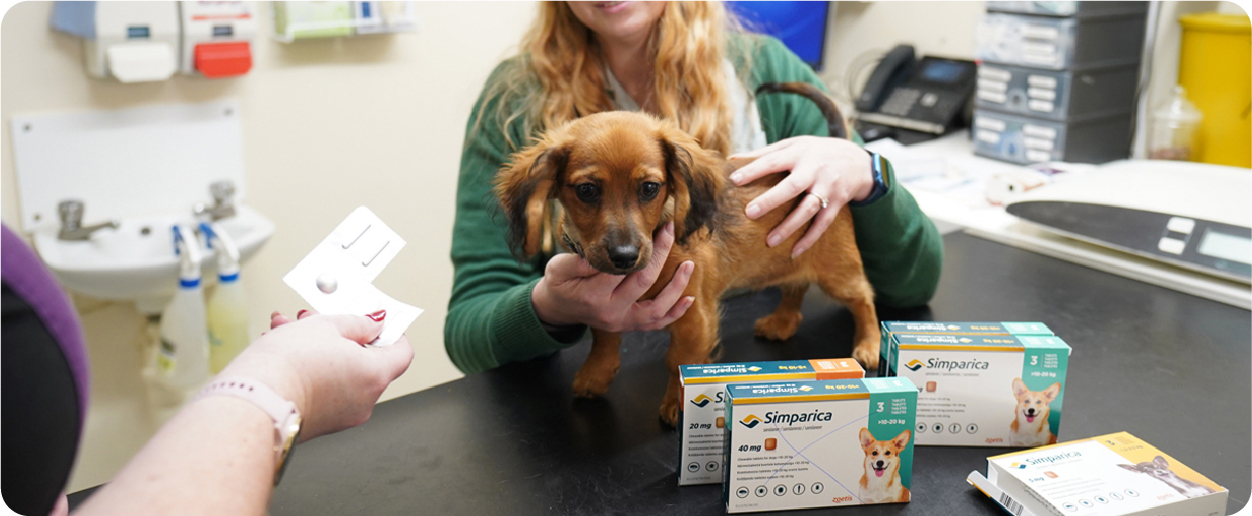Fleas, ticks and worms are the most common parasites found on pets and can spread serious infections and diseases such as tapeworm, lungworm and Lyme disease. They can also cause health problems for pet owners so it’s important to administer preventative medicines regularly.
Flea and worm treatments should be regularly given as recommended by your vet and we can supply all the necessary medications here at our surgeries. Please ask our client care team for more details.
Take a look at our Pet Health Plans, which include our gold standard range of parasite prevention treatments, including protection against lungworm – learn more.
Worming
Roundworms, Hookworms & Tapeworms
Roundworms are passed onto new-borns from their mother and we recommend monthly worming treatment until your pet is six months of age. After six months of age, worming will depend on certain factors such as outdoor access, hunting and the presence of children or other vulnerable people within the household. We recommend using a product that protects against Roundworms, as well as Hookworms and Tapeworms which are common. Your pet can become infested by eating a flea containing tapeworm stages or hunting mice, birds, etc.
Lungworm
Lungworm is a parasitic worm that resides in the heart and pulmonary arteries and can be fatal for dogs. Unlike other intestinal worms like roundworm and tapeworm, adult lungworm travel around the body and can damage a dog’s lungs and other major organs – this can have fatal consequences if left untreated.
Your pet can become infected with lungworm through the ingestion of infected slugs and snails, so we highly recommend protecting your pet against this with regular preventative treatments. We also recommend that dog toys and bowls aren’t left outdoors overnight.
Flea control
The most commonly found flea on cats and dogs is the cat flea (Ctenocephalides felis). Fleas may cause your pet to scratch, lick or bite, or have unusual red patches of skin, signs of hair loss or signs of flea dirt. Some animals may suffer from flea allergic dermatitis (FAD). We recommend using a product that protects against key stages of the flea lifecycle and also protects against ticks too! We sell products that treat fleas and ticks – please ask reception for more details.
We periodically review the parasitic products needed to match the parasite risk and give the best cover for your pets at any one time. Our team will advise you on a safe and effective product.
Read more about flea control on our Milton Keynes Vet Group fleas guide
Tick control
Ticks are an external parasite which will latch onto your pet and feed. They are larger parasite than most, and can be more easily spotted. When a tick attaches to your pet, initially it will appear with a small head with a shiny body. This body will increase in size when it begins to feed. Typically, they are pale in colour and will be an overall round shape – they can sometimes be easily confused as lumps or skin tags and are dismissed by owners. Ticks, just like fleas, are not only a nuisance but they can also pass on diseases such as Lyme disease as well as other conditions which can be life threatening.
There are believed to be approximately 900 species of ticks across the world. Several species of ticks are found in the UK, with the most common being Ixodes ricinus, Deracentor reticulatus, Ixodes hexagenous and Rhicephalus sanguineus.
Read more about tick control on our Milton Keynes Vet Group tick guide

